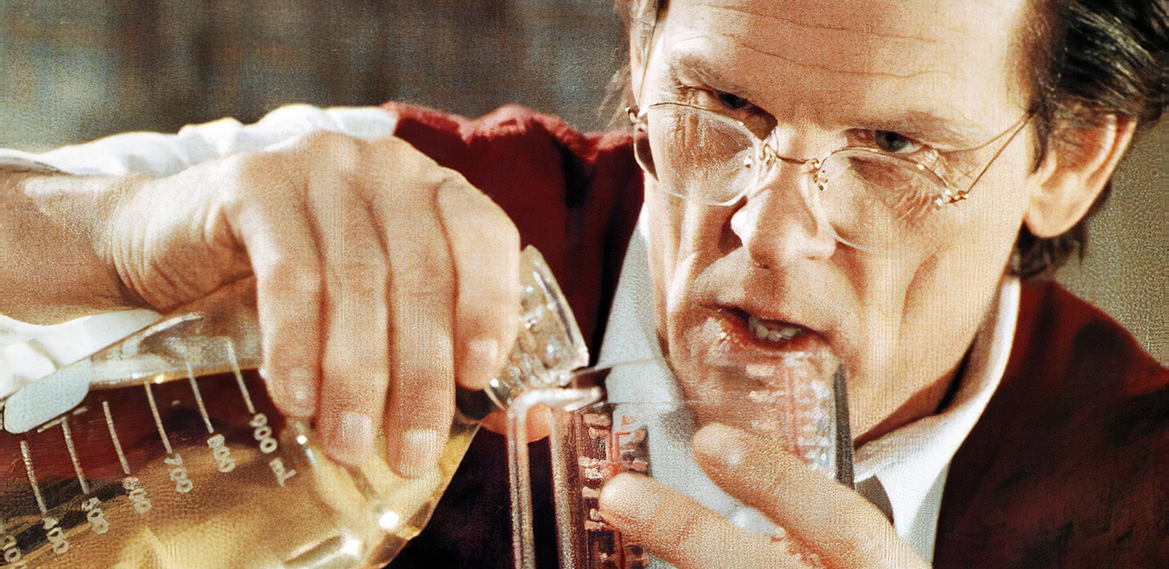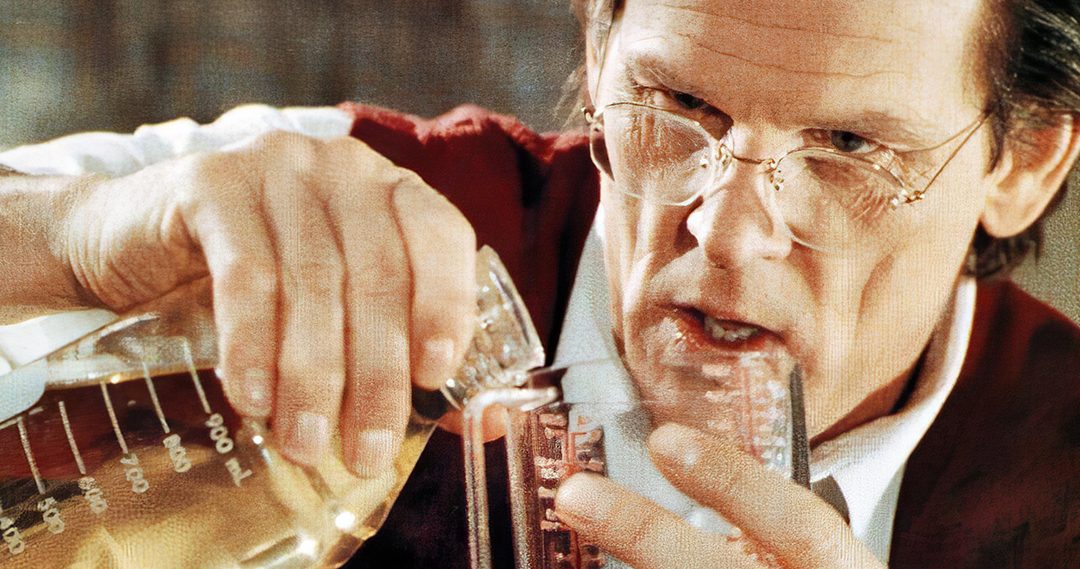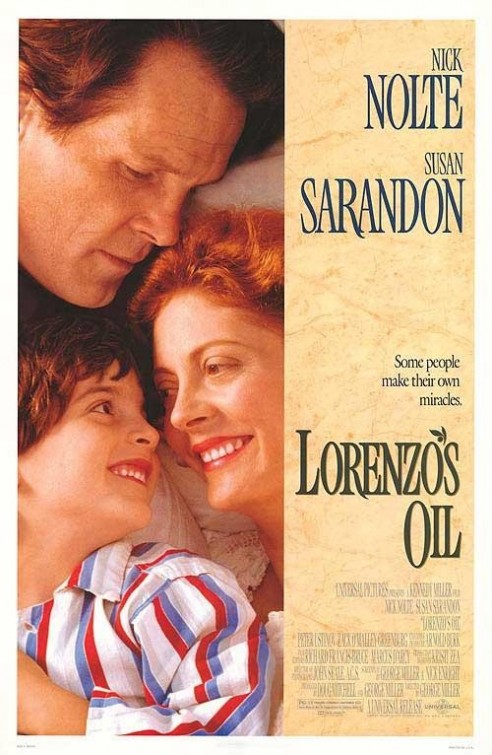“The Tenant” is also new to Blu-Ray this week.

Lorenzo’s Oil
“Lorenzo’s Oil” has a first half that shows why some people become atheists, and a second half that shows how some people find their way to God. The movie, which is from 1992, starts off in 1984 and tells the story of Lorenzo Odone, played most prominently by Zack O’Malley Greenburg, a five-year-old stricken with what at one point is described as a “heartless disease” called adrenoleukodystrophy, or ALD for short. At the time of this movie’s setting, it had only been diagnosed within the previous decade and very little was known about how to treat it.
Watching this young boy suffer, it’s reasonable to ask the common question that if God is all knowing and all powerful, how can he allow such an awful thing to happen to an innocent child? His devout Catholic mother Michaela (Susan Sarandon) probably asked this question. Once she finds out that the disease is transmitted only from mother to son, her feelings of guilt about her son’s affliction are exacerbated. “Lorenzo’s Oil” is a movie about the characters’ struggles with science and medicine, not with religion, but since Michaela’s beliefs are touched upon early on, I did leave the movie wondering if she started to have doubts.
If she did, they were probably assuaged by the events of the second half of the movie. As Michaela tirelessly dedicates herself to being with Lorenzo, serving the role of mother, nurse, and entertainer (she reads him stories), her husband Augusto (Nick Nolte, speaking with an excellent Italian accent) runs himself ragged with doing research. His drive and determination push along the research and development of new treatments for ALD, with Lorenzo being the test subject, and mercifully, the eventual beneficiary. The movie’s tagline is “Some people make their own miracles,” but the faith-oriented I am sure will see the hand of God at play, working His miracle through Augusto.
The principal dichotomy in “Lorenzo’s Oil” is between the medical establishment and grassroots research, such as that done by the Odones. If Augusto and Michaela represent the drive and determination of parents who want to see their child heal, Dr. Nikolais (Peter Ustinov) represents the more cautious and slow-moving medical establishment. The process to even get permission for testing from the FDA is painstaking and laborious. It takes time that the Odones simply do not have. What’s impressive about the doctor’s portrayal is that he does his best to make it clear that he cares. This is not a cold, unfeeling, strictly clinical stuffed shirt who is only looking out for his interests. He genuinely wants to help. He just needs to be more balanced in his approach.
More of a surprise in “Lorenzo’s Oil” comes from Ellard and Loretta Muscataine (James Rebhorn and Ann Hearn). They had two sons afflicted with ALD and run a nationwide support group for parents. They are very good at following the medical guidelines and providing parents with news about the latest developments in ALD treatment, but their involvement stops there. One of the movie’s highlight scenes is an after-dinner conversation between the Odones and the Muscataines. The Odones made a great discovery and wanted the Muscataines to merely spread the word about it. The Muscataines refuse. The pro and con arguments back and forth between the couples are so compelling that it’s hard to say either side is completely right or wrong. The truth is that there is no perfect answer. It’s up to the parents to decide what’s best for their son.
“Lorenzo’s Oil” is excellent enough to warrant a Buy it recommendation. However, I will concede that this movie, due to its subject matter, is a very difficult watch. The response I have to that is that it’s a difficult watch in all of the best ways possible. It’s an exaltation of the human spirit. It shows the overcoming of impossible odds. It shows how dedication, focus, and good ol’ fashioned hard work can provide outstanding results. This is to say that in spite of the terror that is ALD, this movie’s ultimate message is inspiring and uplifting, which is good nourishment for the soul. At the very least, Rent it¸get through the tough to watch parts involving Lorenzo’s suffering, and get to parts that prove that yes—divine or not—miracles do happen.
The Tenant
Since 1976’s “The Tenant” is about a man in Paris who experiences a psychological meltdown after renting an apartment whose previous occupant threw herself out the window, and it was co-written, directed, and stars Roman Polanski, who has a good track record with movies featuring psychological breakdowns and apartments (“Repulsion,” “Rosemary’s Baby”), it is an easy movie to get excited to see. This is, of course, before you actually watch it.
“The Tenant” is a muddled, confusing mess—and a horribly directed one at that. Stars Melvyn Douglas, Shelley Winters, and Isabelle Adjani give performances and line deliveries that feel like they’re from another movie. If movies weren’t a visual medium, so we can see the actors in the same room together, it would be easy to think that each performance was done independently of the others in each scene. Polanski really missed the mark here. The best reason I can think of for its existence is that Polanski saw an opportunity to dress in drag, which the main character does as he loses his mind, and took it for that reason. No judgment—you do you, Polanski—but at least care about directing a good movie while you apply the lipstick and mascara. Skip it, and for a really, really, good film about apartments, psychological breakdowns, and interesting characters, check out Isabelle Adjani in 1981’s “Possession,” with Sam Neil. Her famous subway corridor scene alone makes that movie worth it—easily some of the best acting ever performed on screen, big or small.
“An Accidental Studio,” documentary about the early years of HandMade Films, seen through the eyes of the filmmakers, key personnel, and the man who started it all: former Beatle George Harrison.



